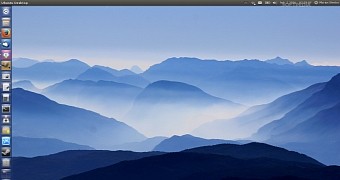Today, June 28, 2016, Canonical's Dimitri John Ledkov has laid down an example draft plan on how Canonical will deal with 32-bit (i386) support for upcoming Ubuntu Linux releases.
This is not the first time Ubuntu developers are discussing the matter of Canonical dropping support for 32-bit PCs. Still, every time a developer re-opens the topic, things are getting much serious, and it now looks like Dimitri John Ledkov has a pretty decent plan on limiting the 32-bit Ubuntu installation, starting with the upcoming Ubuntu 16.10. Debian is also considering dropping support for older 32-bit hardware architectures in Debian GNU/Linux 9 "Stretch."
"Building i386 images is not "for free", it comes at the cost of utilizing our build farm, QA and validation time," said Dimitri John Ledkov, Software Engineer at Canonical. "Whilst we have scalable build-farms, i386 still requires all packages, autopackage tests, and ISOs to be revalidated across our infrastructure. As well as take up mirror space & bandwidth."
Therefore, the developer now suggests that starting with Ubuntu 16.10 and until the next LTS (Long Term Support) release, Ubuntu 18.04, Canonical should continue to provide the 32-bit (i386) port to run legacy apps on 64-bit systems, build the 32-bit d-i / netboot installer and corresponding kernel, as well as the cloud images, but no longer offer the 32-bit Ubuntu Desktop and Server ISOs.
Ubuntu 16.10 "Yakkety Yak" could not come with 32-bit ISOs
So, if we are reading this right, starting with the upcoming Ubuntu 16.10 "Yakkety Yak" release, there shouldn't be any 32-bit Desktop and Server ISO images available for download. The same plan should stick for the Ubuntu 17.04 and Ubuntu 17.10 as well. Then, starting with Ubuntu 18.04 LTS, Canonical should also stop producing the 32-bit (i386) d-i / netboot installer, kernel, and cloud images.
Finally, beginning with Ubuntu 18.10, the support for 32-bit PCs will be complete vanished, and users will be able to run legacy 32-bit app in Snaps, containers, or virtual machines. "The key point here is lack of upstream software support and upstream security support on i386, rather than actual hardware being out of stock and/or old," said Dimitri John Ledkov. "In essence this would mean April 2021 as the sunset for i386 as the host/base OS architecture."
Update: A survey is now online at http://goo.gl/forms/UfAHxIitdWEUPl5K2 if you want to device the faith of the 32-bit (i386) support on Ubuntu.

 14 DAY TRIAL //
14 DAY TRIAL //